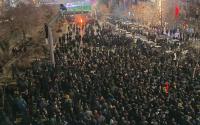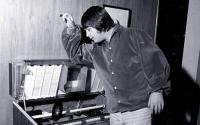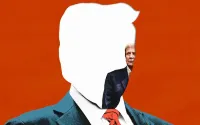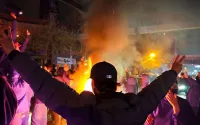2 October 2007Yahoo! NewsAndrew Stern
Democratic presidential candidate Barack Obama said on Tuesday if elected president he would pursue a global ban on nuclear weapons as he sought to pick up ground on his front-running rival, Hillary Clinton.
"Here's what I'll say as president: America seeks a world in which there are no nuclear weapons," Obama said.
Obama marked the five-year anniversary of a speech he gave as a U.S. Senate candidate outlining his opposition to the Iraq war, noting it came just 10 days before his top rival for the party nomination, New YorkSen. Clinton, voted to back the invasion of Iraq.
"Let's be clear: without that vote, there would be no war," Obama told DePaul University students. "This is not just a matter of debating the past. It's about who has the best judgment to make the critical decisions of the future."
Obama, renewing his argument with Clinton that she represents conventional thinking in Washington, said new thinking is needed over U.S. nuclear policies that he said were mired in a Cold War mentality.
He said he would not pursue unilateral disarmament of nuclear weapons.
"We'll work with Russia to take U.S. and Russian ballistic missiles off hair-trigger alert. We'll start by seeking a global ban on the production of fissile material for weapons. And we'll set a goal to expand the U.S.-Russian ban on intermediate-range missiles so that the agreement is global," Obama said.
The rival Democratic presidential campaign of John Edwards accused Obama of copying one of the former North Carolina senator's ideas.
"If you need any more proof that John Edwards is shaping the race for the Democratic nomination, you don't need to look any further than Senator Obama, who has followed Edwards' lead on health care, poverty, and today, eliminating nuclear weapons," said Edwards spokeswoman Colleen Murray.
The first-term senator from Illinois said critics -- actually it was Clinton -- called him "naive and irresponsible" when he said he would negotiate with the leaders of hostile nations like Iran and Cuba.
And he said he was "lectured" for saying he would launch an attack on Osama bin Laden in Pakistan. And it was called a "gaffe" when he ruled out using nuclear weapons on terrorist training camps.
On each, he defended his stance.
"We're not going to be safe in a world of unconventional threats with the same old conventional thinking that got us into Iraq," he said.
In a Democratic debate in New Hampshire last week among the party's candidates for the November 2008 election, leading contenders Clinton, Obama and Edwards could not commit to having all U.S. troops out of Iraq by 2013, when their prospective first term as president would end.
Obama said, as president, the only troops remaining in Iraq after a 16-month drawdown would be there to protect U.S. forces and diplomats and to stage counter-terrorism strikes.
"Let there be no doubt: I will end this war," he said.
Obama began a new push to make up ground against Clinton, who has a double-digit lead in national polls but whose advantage in the early voting state of Iowa is much narrower.
Just before embarking on a four-day swing through Iowa, Obama also said he would depoliticize U.S. intelligence services by making the head of intelligence a four-year appointment.
(Additional reporting by Steve Holland in Washington)
(To read more about the U.S. political campaign, visit Reuters "Tales from the Trail: 2008" online at http://blogs.reuters.com/category/events/trail08/)






